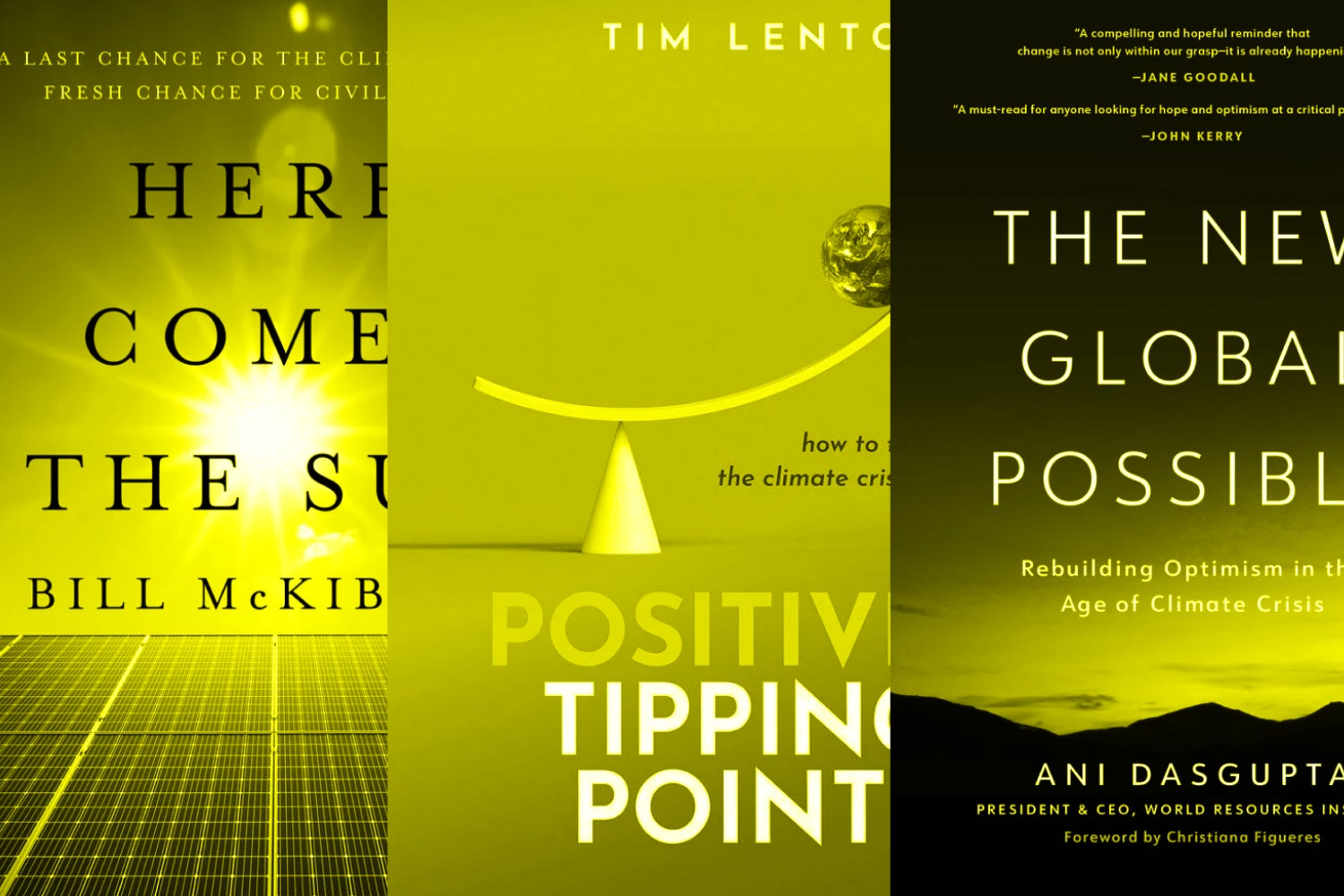Glance at any single algorithm’s worth of news these days and it’s easy to feel gloomy. Those of us who keep tabs on climate policy (and punditry) can feel ourselves teetering on the brink, one small breeze away from screaming off into the chasm. But here’s the thing: Positive change is happening, too. And a trio of new climate books finds optimism in our current moment.
These books don’t shy away from tough issues or lean on tired clichés. Written by leading climate and sustainability thinkers, they could be described as optimists’ escape plans—hopeful visions that clearly outline what needs to happen to get us out of this mess. Together, they provide balance to the often overwhelming news cycle by showing that meaningful progress is possible if we act boldly, wisely, and together.
Here Comes The Sun: The Rise of the Solar Age by Bill McKibben
In 2023, the world produced more than 1,600 terrawatt-hours of solar energy, enough to power 113,000,000 homes for an entire year. Those numbers are especially impressive once you realize we’re only getting started. In Here Comes the Sun, activist and eternal optimist Bill McKibben reminds us just how frickin’ great solar power is—and how world-changing it’s already become. McKibben chronicles the rise of solar energy from early experiments to today’s massive arrays. He positions solar not as just another green energy solution, but as something that has the power to reshape the world. To truly harness solar is to have a fairer, more sustainable energy system and McKibben illustrates this with stories of communities already leading the way.
$28; bookshop.org
Positive Tipping Points: How to Fix the Climate Crisis by Timothy Lenton
A bit of history for the curious: The name one5c refers to the 1.5 degrees C—the tipping point in global temperature rise we must stay under to avoid the most catastrophic effects of human-caused climate change. Timothy Lenton, a professor of climate science at the University of Exeter, popularized the idea of climate tipping points, including 1.5 degrees C. He’s published a map of them since 2008, and, as you might imagine, it’s as eye-opening as a quad-shot of espresso. But that doesn’t mean all tipping points are bad. In this book, Lenton shifts the narrative to focus on “positive tipping points”—moments when small changes can trigger large transformations for the better. Drawing on real-world examples, he shows how these shifts are already taking place in areas like renewable energy, electric vehicles, and plant-based food systems.
$26; bookshop.org
The New Global Possible: Rebuilding Optimism in the Age of Climate Crisis by Ani Dasgupta
In her book Hope in the Dark, activist and writer Rebecca Solnit describes hope as “not a lottery ticket you can sit on the sofa and clutch, feeling lucky. It is an ax you break down doors with in an emergency.” In other words, hope is a weapon—and it’s one Ani Dasgupta wields well. In fact, Dasgupta, President and CEO of the World Resources Institute, sees a full arsenal of tools to address the climate crisis—many of them are already in use. We just need to find ways to deploy these solutions at scale. Dasgupta devotes little ink to climate bummers. Instead, he interviews 100 leaders around the world to find examples of interesting collaborations and unique ideas that are already shaping the future.
$27; bookshop.org

